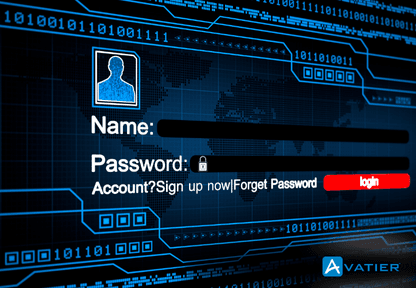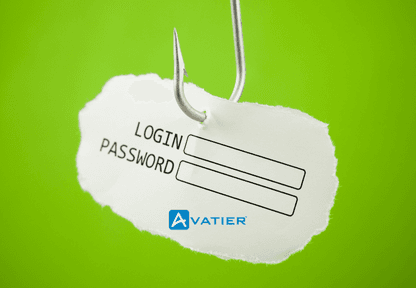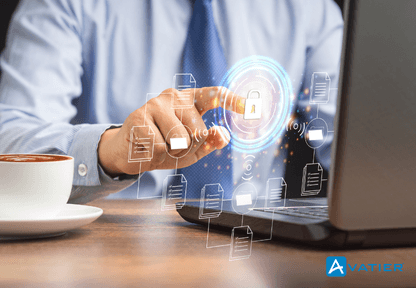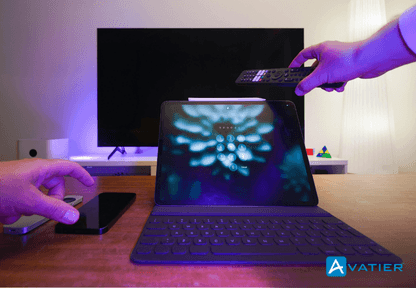July 6, 2025 • Mary Marshall
Mobile Identity and Privacy: Navigating GDPR and CCPA Compliance in the Digital Age
Discover how Avatier’s identity management solutions help enterprises achieve GDPR and CCPA compliance while securing mobile identities.

Mobile devices have become extensions of our identities. From banking and healthcare to social interactions and work communications, our smartphones contain vast amounts of sensitive personal data. As organizations embrace mobile-friendly work environments, the intersection of mobile identity management and privacy regulations has never been more critical.
With 79% of companies experiencing identity-related security breaches in the past two years according to the Identity Defined Security Alliance, the stakes couldn’t be higher. For enterprises managing global workforces across multiple jurisdictions, compliance with privacy regulations like GDPR and CCPA isn’t just about avoiding penalties—it’s about building trust, securing digital identities, and creating sustainable business practices.
The Evolving Landscape of Privacy Regulations
GDPR: Europe’s Gold Standard for Data Protection
The General Data Protection Regulation (GDPR) fundamentally changed how organizations handle personal data. Implemented in 2018, this comprehensive regulation applies to any organization processing EU residents’ data, regardless of where the company is based.
Key GDPR requirements affecting mobile identity management include:
- Explicit consent: Users must actively opt into data collection
- Right to be forgotten: Users can request deletion of their personal data
- Data portability: Users can request and transfer their data
- Breach notification: Organizations must report breaches within 72 hours
- Privacy by design: Security must be built into systems from the ground up
The financial implications are significant—GDPR violations can result in fines up to €20 million or 4% of global annual revenue, whichever is higher.
CCPA: California’s Consumer Privacy Framework
The California Consumer Privacy Act (CCPA), effective since January 2020, represents the most comprehensive privacy legislation in the United States. It grants California residents specific rights regarding their personal information and applies to businesses that:
- Have annual gross revenues over $25 million
- Buy, sell, or receive personal information of 50,000+ California residents annually
- Derive 50% or more of annual revenue from selling California residents’ personal information
CCPA gives consumers the right to know what personal information is collected, access that information, request deletion, opt out of data sales, and receive equal service without discrimination.
The Mobile Identity Challenge
Mobile devices present unique challenges for identity management and privacy compliance:
- Multiple access points: Each device creates new entry points to secure
- Blurred boundaries: Personal and professional data often coexist on the same device
- Diverse ecosystem: Various operating systems, app stores, and device manufacturers
- Persistent connectivity: Always-on access creates continuous vulnerability windows
- Location awareness: Geolocation data adds another sensitive data dimension
According to a recent Verizon Mobile Security Index, 43% of organizations sacrificed mobile security to “get the job done,” highlighting the tension between security and usability.
Building a Compliant Mobile Identity Infrastructure
Identity Lifecycle Management: The Foundation of Compliance
For organizations seeking robust compliance frameworks, comprehensive Identity Lifecycle Management (LCM) provides the essential foundation. LCM ensures that user access rights evolve throughout the employee journey—from onboarding through role changes to eventual offboarding—while maintaining appropriate controls and documentation.
An effective lifecycle management system addresses key compliance requirements by:
- Creating auditable trails of access permissions
- Preventing unauthorized access through timely deprovisioning
- Implementing least privilege principles for sensitive data
- Automating compliance-driven access reviews
- Maintaining evidence of consent and authorization
Zero-Trust Architecture for Mobile Environments
Today’s distributed workforces require a shift from perimeter-based security to zero-trust models. This approach operates on the principle of “never trust, always verify,” requiring authentication and authorization for every access request regardless of origin.
For mobile environments, this means:
- Continuous verification: Authentication doesn’t stop at login
- Micro-segmentation: Granular control over who accesses specific resources
- Least privilege access: Users receive only the minimum necessary permissions
- Real-time monitoring: Continuous analysis of behavior for anomalies
- Adaptive policies: Security controls that adjust based on risk factors
Research from Ping Identity found that 86% of IT decision-makers have either implemented or are planning to implement zero-trust security models, recognizing their essential role in privacy compliance.
Multi-Factor Authentication: Beyond the Password
According to Microsoft, MFA can block 99.9% of account compromise attacks, making it an essential component of mobile identity protection. Modern Multifactor Authentication (MFA) solutions leverage various authentication methods including:
- Biometric verification (fingerprint, facial recognition)
- Push notifications to registered devices
- Time-based one-time passwords (TOTP)
- Location-based verification
- Behavioral analysis
For GDPR and CCPA compliance, MFA provides crucial technical safeguards that demonstrate appropriate security measures for protecting personal data. It helps organizations meet the GDPR requirement for “appropriate technical and organizational measures” and the CCPA’s reasonable security procedures.
Privacy-Enhancing Technologies for Compliance
Consent Management Platforms
Managing user consent is fundamental to both GDPR and CCPA compliance. Organizations must:
- Collect explicit consent before processing personal data
- Store consent records securely for audit purposes
- Allow users to withdraw consent easily
- Provide clear information about how data will be used
Modern consent management platforms integrate with identity systems to maintain comprehensive records of user preferences and permissions. These solutions help enterprises avoid the significant penalties associated with improper consent practices.
Data Minimization and Anonymization
Both GDPR and CCPA emphasize collecting only necessary data and limiting retention periods. Organizations can implement this through:
- Data minimization: Collecting only what’s needed for legitimate purposes
- Pseudonymization: Replacing identifiable information with aliases
- Anonymization: Processing data to prevent re-identification
- Purpose limitation: Using data only for its intended purpose
These practices reduce compliance risks by limiting the scope and sensitivity of personal data processed on mobile platforms.
Industry-Specific Compliance Considerations
Different sectors face unique mobile identity and privacy challenges:
Healthcare: HIPAA Integration
For healthcare organizations, HIPAA compliance must be integrated with GDPR and CCPA requirements. Mobile health applications and remote care platforms must implement additional safeguards through HIPAA-compliant identity management to protect sensitive medical information.
Key considerations include:
- Strict authentication for electronic health record access
- End-to-end encryption for patient communications
- Secure handling of biometric health data
- Comprehensive audit trails for all data access
Financial Services: Multi-Layered Protection
Financial institutions manage highly sensitive personal and financial information subject to both privacy regulations and industry-specific requirements like PCI DSS. The financial services sector must implement particularly robust mobile identity controls, including:
- Transaction-specific authentication
- Continuous fraud monitoring
- Device fingerprinting and risk assessment
- Secure credential storage
Education: FERPA Alignment
Educational institutions must navigate the intersection of GDPR, CCPA, and the Family Educational Rights and Privacy Act (FERPA). Education-focused identity solutions must address considerations such as:
- Parental consent management for minors
- Appropriate data sharing with third-party educational services
- Protection of academic records and performance data
- Secure mobile access to learning management systems
Building a Compliance Roadmap with Avatier
Achieving and maintaining mobile identity compliance requires a strategic approach. Organizations should:
1. Conduct a Privacy Impact Assessment
Begin with a comprehensive assessment of your current mobile identity infrastructure, identifying:
- What personal data is collected and processed
- Where and how this data is stored
- How data flows between systems and jurisdictions
- Existing security controls and their effectiveness
- Gaps between current practices and regulatory requirements
2. Implement Privacy by Design
Privacy must be embedded into the development process, not added as an afterthought. This means:
- Building data protection into new applications from conception
- Conducting privacy reviews before releasing mobile features
- Incorporating privacy-enhancing technologies by default
- Creating development frameworks that prioritize user privacy
3. Deploy Unified Identity Management
A fragmented approach to identity management creates compliance risks. Organizations should implement comprehensive identity management services that provide:
- Centralized user lifecycle management
- Consistent access controls across environments
- Self-service privacy preference management
- Automated compliance reporting
4. Establish Continuous Compliance Monitoring
Privacy compliance isn’t a one-time achievement but an ongoing process. Organizations need:
- Regular access certification reviews
- Automated detection of unusual access patterns
- Updated data processing inventories
- Periodic penetration testing of mobile applications
5. Prepare for Cross-Border Data Challenges
With global workforces, organizations must address the complexities of cross-border data transfers:
- Implement appropriate data transfer mechanisms (Standard Contractual Clauses, etc.)
- Understand regional variations in privacy requirements
- Map data flows across jurisdictions
- Consider data localization where necessary
The Future of Mobile Identity and Privacy Compliance
As we look ahead, several emerging trends will shape the future of mobile identity and privacy:
Privacy-Enhancing Computation
Advanced techniques like homomorphic encryption, secure multi-party computation, and federated learning will enable organizations to derive insights from personal data without exposing the underlying information—reducing compliance risks while maintaining analytical capabilities.
Decentralized Identity
Blockchain and self-sovereign identity technologies are moving control of personal data back to individuals. These approaches can significantly reduce organizational compliance burdens by minimizing the personal data that must be stored.
Regulatory Convergence
As more jurisdictions implement privacy legislation, we’re likely to see greater harmonization of requirements—potentially simplifying compliance for global organizations. Preparing for GDPR and CCPA creates a strong foundation for adapting to emerging regulations.
Conclusion
Mobile identity management and privacy compliance represent two of the most significant challenges facing today’s enterprises. Organizations that integrate these considerations into their identity infrastructure gain not only regulatory compliance but also stronger security posture and enhanced customer trust.
By implementing comprehensive identity lifecycle management, embracing zero-trust principles, and deploying appropriate privacy-enhancing technologies, enterprises can navigate the complex landscape of global privacy regulations while supporting secure mobile access.
In this rapidly evolving environment, partnering with identity management experts who understand both the technical and regulatory aspects of mobile identity is essential. Avatier’s comprehensive identity solutions provide the foundation for sustainable compliance strategies that scale with your business and adapt to emerging requirements.
Are you ready to transform your approach to mobile identity and privacy compliance? Discover how Avatier can help you build a future-proof identity infrastructure that supports privacy compliance while enabling seamless mobile experiences for your workforce.









